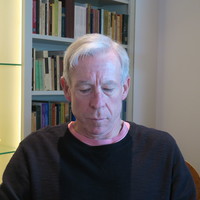
Ilpo Hirvonen
I am a PhD student of Theoretical Philosophy at the University of Helsinki. My research interests lie at the intersection of Edmund Husserl's phenomenology and analytical philosophy of mind and language. In my doctoral dissertation, I investigate the possibility of interpreting Husserl's account of intentionality within the internalism-externalism debate with regard to intentional content and linguistic meaning. When it comes to Husserl's phenomenology in particular, my more specific research interests concern the noema and occasional judgments. More broadly speaking, I am interested in philosophy of language, philosophy of mind, and history of philosophy in general.
less
Related Authors
Steven Crowell
Rice University
Dan Zahavi
University of Copenhagen
Thomas J Hansberger
Marquette University
Andrea Pace Giannotta
Università degli studi Niccolò Cusano, telematica Roma
Jacob M Rump
Creighton University
Dermot Moran
Boston College
Gerhard Preyer
Goethe-Universität Frankfurt am Main
Denis Džanić
University of Graz
Sanjit Chakraborty
Vellore Institute of Technology
Dustin Zielke
Camosun College
InterestsView All (17)










Uploads
Papers by Ilpo Hirvonen
rejection in these interpretations of Husserl. The reason why the internal-external divide has been deemed inapplicable to the transcendental framework of Husserl’s phenomenology is first located to a spatial sense in which the concepts of internality and externality are usually understood. It is then argued that the internal-external divide can be rendered applicable to the transcendental framework of Husserl’s phenomenology by reconfiguring internality and
externality in relation to the subject’s point of view. In addition to Farkas’ proposal that conceives the internal-external divide in phenomenal terms, two phenomenological ways of understanding internality and externality are considered. The main problem in both Farkas’ proposal and the two phenomenological proposals is that they preclude some forms of externalism. This article solves the problem by using the two phenomenological proposals to modify Farkas’ proposal so that a broader range of externalism is enabled.
The paper tries to show first that phenomenology is better understood as externalist rather than as internalist and second that Husserl's phenomenology already exemplifies the externalist notions of being-in-the-world so prominent in Heidegger's and Merleau-Ponty's philosophy. It is argued that externalism and phenomenology belong together because externalism seems to implicitly contain a notion of the entanglement of the mind and the world typical for phenomenology, whereas phenomenology emphasizes how the subject is always outside itself embedded in the lifeworld. Furthermore, this claim is seen as a possibility to further facilitate the dialogue between analytical and phenomenological philosophy.
Paper published at the Undergraduate Awards' online library: http://www.undergraduatelibrary.org/2016/philosophy-theology/interrelation-between-phenomenology-and-externalism
rejection in these interpretations of Husserl. The reason why the internal-external divide has been deemed inapplicable to the transcendental framework of Husserl’s phenomenology is first located to a spatial sense in which the concepts of internality and externality are usually understood. It is then argued that the internal-external divide can be rendered applicable to the transcendental framework of Husserl’s phenomenology by reconfiguring internality and
externality in relation to the subject’s point of view. In addition to Farkas’ proposal that conceives the internal-external divide in phenomenal terms, two phenomenological ways of understanding internality and externality are considered. The main problem in both Farkas’ proposal and the two phenomenological proposals is that they preclude some forms of externalism. This article solves the problem by using the two phenomenological proposals to modify Farkas’ proposal so that a broader range of externalism is enabled.
The paper tries to show first that phenomenology is better understood as externalist rather than as internalist and second that Husserl's phenomenology already exemplifies the externalist notions of being-in-the-world so prominent in Heidegger's and Merleau-Ponty's philosophy. It is argued that externalism and phenomenology belong together because externalism seems to implicitly contain a notion of the entanglement of the mind and the world typical for phenomenology, whereas phenomenology emphasizes how the subject is always outside itself embedded in the lifeworld. Furthermore, this claim is seen as a possibility to further facilitate the dialogue between analytical and phenomenological philosophy.
Paper published at the Undergraduate Awards' online library: http://www.undergraduatelibrary.org/2016/philosophy-theology/interrelation-between-phenomenology-and-externalism